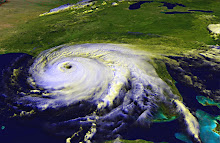If you decide to leave home, where will you go?
Many people have out-of-state relatives they can stay with during the storm. You can try to find a hotel - keeping in mind that the hotels on major evacuation routes fill up very quickly. Can you bring pets along or will you need to board them? Make sure you have vaccination records and tags from your vet, along with any medications and pet food.
As you're packing, take a few days worth of clothes, your medications and toiletries. If you are staying with someone else, will they take care of feeding you or should you take along those steaks from the freezer (you may lose 'em anyway, when the power goes out). If you are in a hotel, will you be dining out every meal? Taking food with you from home? Buying at a nearby grocery store?
If you're going to a public shelter, they typically do not provide anything but four walls and a roof. They are intended for people who live in mobile homes, flood areas, beachfront homes who must evacuate and have no place else to go. If anyone in your family has a medical condition, ask about special needs shelters. They often have a volunteer nurse on hand. Find out where the shelters are, whether they provide cots or anything that a standard shelter doesn't have, and whether they have a generator, particularly if someone in your family relies on electrical equipment, such as an oxygen tank.
Talk to your doctor in advance about how to preserve medications that require refrigeration. What do you do if your power goes out and your life-saving equipment doesn't work? If you are staying at home, a generator might be a wise investment. If money is an issue, check with local or state agencies to see if they provide assistance to purchase one. Make sure your power company knows your need -- they'll put you at the top of the list to get your power restored.
If you don't have special needs, you may be able to pack as you would for any holiday away. If you're going to a shelter, you must take your own bedding, food, water, toiletries, and paper goods, as well as clothing.
The American Red Cross offers excellent information on preparing for a storm as well as suggestions on what to bring with you when you evacuate.
Saturday, August 30, 2008
Subscribe to:
Post Comments (Atom)

No comments:
Post a Comment